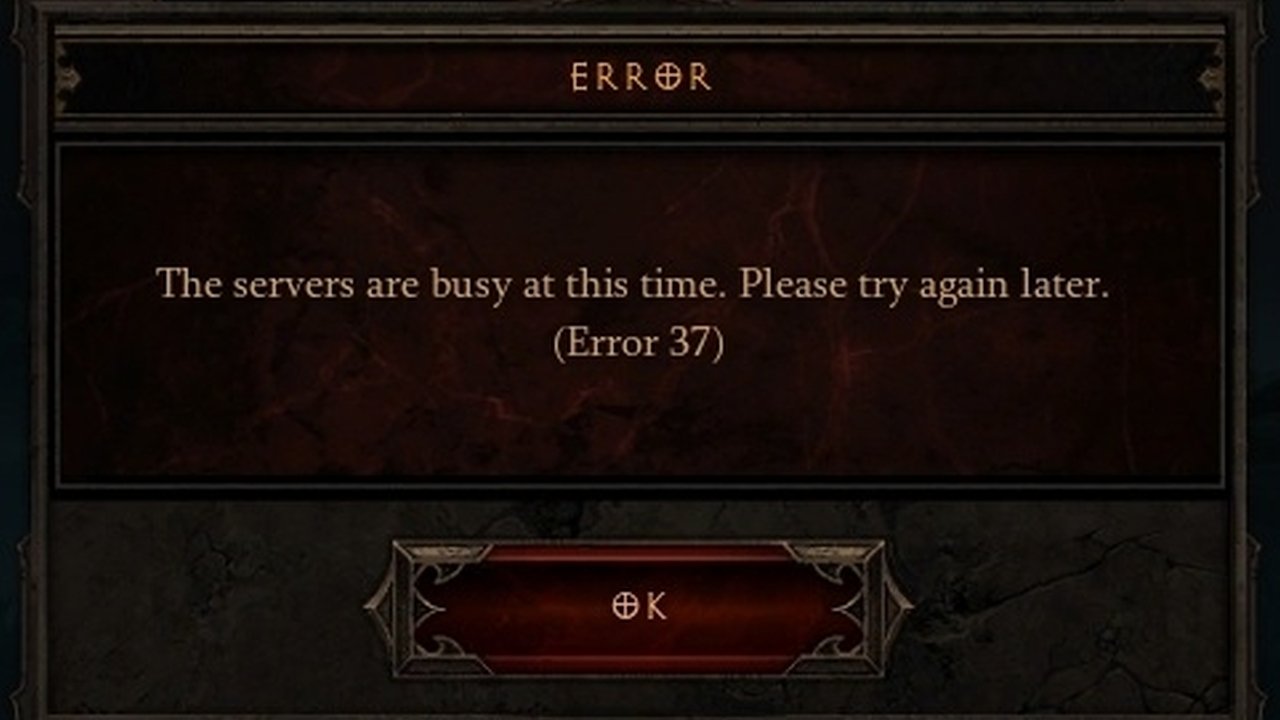Diablo III is a tricky game to gauge by the normal standards for which most games are evaluated. It’s an immensely popular property with a certain segment of the PC gamer crowd that still remembers compulsively pointing and clicking during the 90s. It’s garnered an almost sacred status among those same gamers and, indirectly, that has rubbed off on the millions of people that play World of Warcraft who might never have played the previous games.
All of which is to say that this puts Diablo III in a very fortunate position. Because of the fact that it’s so hotly anticipated, it’s enjoying the status of “can do no wrong.” People—in the millions—have still gone out and bought copies of the game, and this is likely to continue for some time, thanks to the always online connection that makes software piracy of the game nearly impossible for the average PC user. And that’s where we come to a very sticky situation. Blizzard has had years to work on both the game, and its online-required infrastructure, but the opening weeks of the Diablo III are plagued with server downtime that forces people—even in single-player mode—to stop playing a game they legally bought and own, because Blizzard’s own servers won’t let them.
Despite the fact that the game’s launch has seen Metacritic bombarded with poor user reviews, this hasn’t stopped the Diablo III juggernaut from its inexorable, inevitable march towards being one of the best-selling PC games of the year. The game is immune to criticism, it will sell in numbers guaranteed to make Vivendi, Blizzard’s owners, very happy for the 2012 financial year. But more importantly, it has shown to other publishers and developers that if you have a franchise sufficiently popular, no matter how much people may complain—or even hate—certain components of a game, they will buy the game anyway.
This brings us to a scary question. If publishers now know this, are we seeing the start of a trend in PC gaming to combat software piracy by emulating Blizzard’s methods? Will other big publishers start to see the value in this new kind of DRM that obviously is much more effective—for them at least—than traditional, DRM encoded on a disc, even if it comes at the expense of inconveniencing legitimate customers? The problem comes down to the availability of servers needed to authenticate log-ins. There is a finite number of them, and the biggest surge for these servers occurs in the first few weeks. After that, the requirement for such servers drops off tremendously. Blizzard, it seems, has decided that the few weeks of “game denial” aren’t worth the investment in a larger number of servers, and are willing to take the heat of angry consumers if it saves them some dollars in the long run. Other titles, like Battlefield 3 have experienced similar launch problems because there are too many people trying to get in—at first—and the publishers don’t feel like spending more than they need to on the multiplayer component of their games. So what happens if a publisher takes the same approach to a single-player game, the way Blizzard has?
It’s pretty obvious that for a smaller franchise that doesn’t have a rabid fan-base, a move like this, with no “geek cred” amongst gamers, is alienating to the point of being fatal. Blizzard gets away with angering fans who can’t play Diablo III because people have been waiting 12 years to play a new Diablo game. Joe PC Gamer who has no emotional attachment to a brand new franchise, will be far less forgiving if he comes home on launch day and finds that the servers are down and he can’t play the game he just bought. However, take this same scenario and transpose it onto an equally big, equally beloved franchise like Diablo and we see that the same immunity to criticism might apply.
Half-Life 2: Episode 3, for example, is another one of those legendary titles from a beloved publisher and developer that people will play regardless of how many hoops they have to jump through. Currently Valve is still generally regarded as “Not Evil,” compared to other publishers, but then they were also the pioneers of requiring some kind of online validation with the Steam system that most PC gamers take for granted today. But what if that wasn’t enough for them? What if after a lunch with some Blizzard staff, Gabe Newell went back to his office and decided this always-online stuff wasn’t a bad idea? What if others like Electronic Arts also thought this was a good idea and started incorporating a similar mechanic into other beloved franchises such as a new Dragon Age or Mass Effect game on the PC? Publishers are constantly harping on how many lost sales they suffer as a result of rampant PC game piracy. Right now, Blizzard is one of the few not complaining about that for their latest flagship release, and they’ve shown their fans are willing to stomach it no matter how loudly they howl.
Could other publishers really be that far behind?




